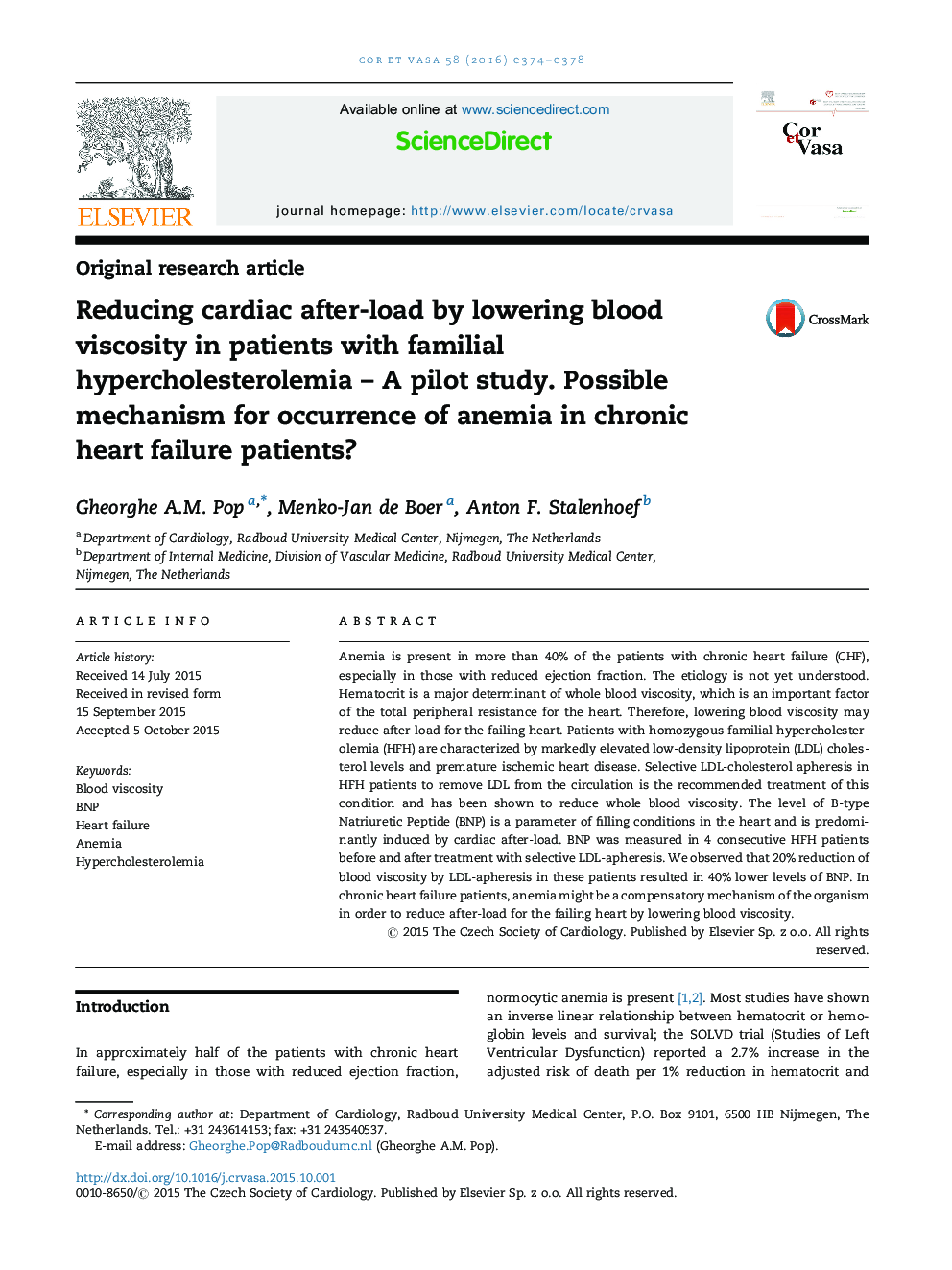| Article ID | Journal | Published Year | Pages | File Type |
|---|---|---|---|---|
| 2732963 | Cor et Vasa | 2016 | 5 Pages |
Anemia is present in more than 40% of the patients with chronic heart failure (CHF), especially in those with reduced ejection fraction. The etiology is not yet understood. Hematocrit is a major determinant of whole blood viscosity, which is an important factor of the total peripheral resistance for the heart. Therefore, lowering blood viscosity may reduce after-load for the failing heart. Patients with homozygous familial hypercholesterolemia (HFH) are characterized by markedly elevated low-density lipoprotein (LDL) cholesterol levels and premature ischemic heart disease. Selective LDL-cholesterol apheresis in HFH patients to remove LDL from the circulation is the recommended treatment of this condition and has been shown to reduce whole blood viscosity. The level of B-type Natriuretic Peptide (BNP) is a parameter of filling conditions in the heart and is predominantly induced by cardiac after-load. BNP was measured in 4 consecutive HFH patients before and after treatment with selective LDL-apheresis. We observed that 20% reduction of blood viscosity by LDL-apheresis in these patients resulted in 40% lower levels of BNP. In chronic heart failure patients, anemia might be a compensatory mechanism of the organism in order to reduce after-load for the failing heart by lowering blood viscosity.
